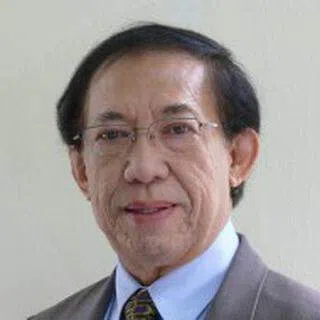Prabowo’s shifting stance on China and Chinese Indonesians
Indonesia’s President-elect Prabowo Subianto may have shed his “anti-Chinese” military persona to become a “pro-Chinese” diplomat, says ISEAS academic Leo Suryadinata.
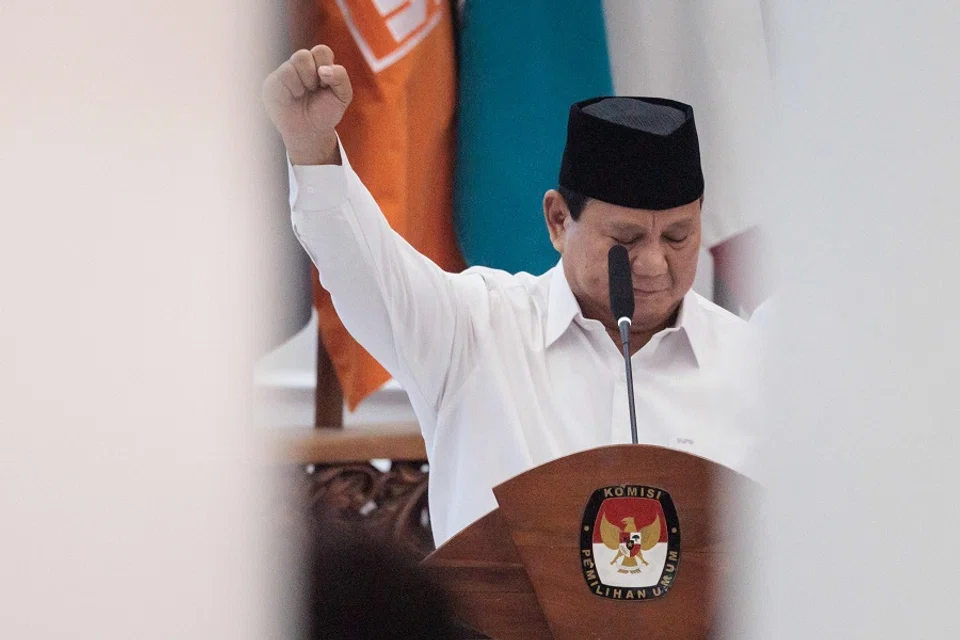
On 22 April, due to a lack of evidence, Indonesia’s Constitutional Court rejected the two losing presidential candidates Anies Baswedan and Ganjar Pranowo’s claim that the 14 February polls were marred by electoral fraud, and declared the formal election of Prabowo Subianto and Gibran Rakabuming Raka as president and vice-president of Indonesia respectively. The losing duo eventually accepted the court ruling.
Prabowo’s political family
Prabowo, 72, has quite a political background. His father Sumitro Djojohadikusumo was a renowned Indonesian economist from an aristocratic Javanese family. During Sumitro’s higher education in the Netherlands, he met and married Christian nurse Dora Marie Sigar. The couple had four children; the two daughters converted to Catholicism, while the two younger sons, Prabowo and Hashim, followed their mother’s religion.
In fact, interfaith marriages in Indonesia were commonplace before Suharto took office. A couple could choose to keep their respective religious beliefs after marriage, while their children could decide on their own religion after growing up. But the Suharto era saw the rise of Islam, hindering interfaith marriages. Non-Muslims were required to convert to Islam before they could marry a Muslim.
Sumitro was an Indonesian university professor who advocated a market economy. He also served as finance minister before Sukarno assumed power. In the second half of the 1950s, he supported the rebellion in Sumatra and Sulawesi against the Sukarno-led leftist central government. The movement failed and he and his family (including Prabowo) went into exile but continued to oppose the Sukarno administration.
He had sojourned in Singapore and later Malaysia and Bangkok, often travelling to Western Europe. Prabowo studied in an English-medium school in Malaysia and later in the UK. It was not until Sukarno was overthrown and General Suharto became president that Sumitro and his family returned to Indonesia. He was appointed to important positions by Suharto, serving as minister of trade and subsequently minister of research.
The young Prabowo was reportedly impetuous, temperamental and abusive.
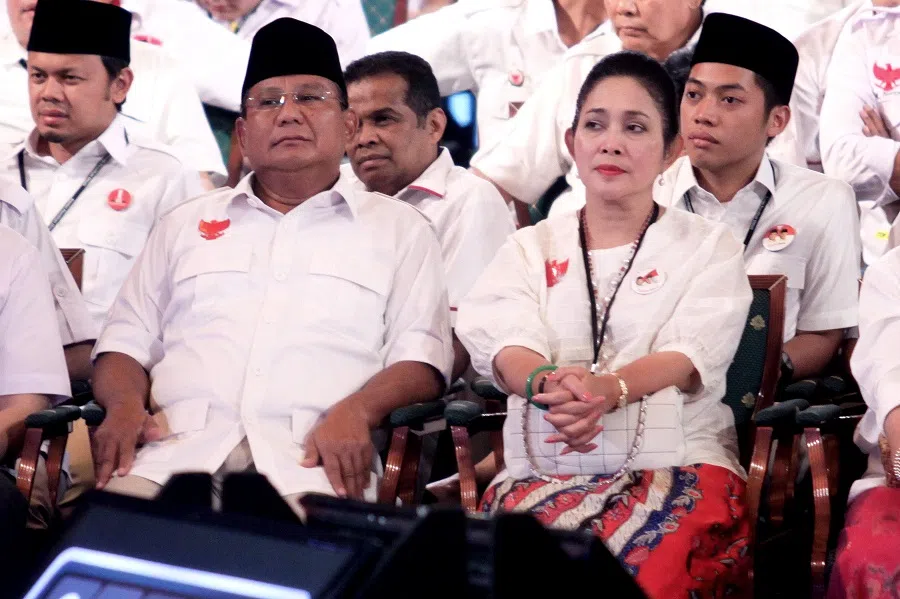
After returning to Indonesia with his father, Prabowo enrolled in the Indonesian Military Academy in Magelang and met Suharto’s second daughter Titiek. Prabowo converted to Islam after the pair married in 1983. Because his father-in-law was the president, Prabowo steadily moved up the ranks in the military. He was quickly promoted to general and became the commander of the special forces in Jakarta, stationed in the capital.
Suharto was a very capable military officer. To control the situation, he allowed the military to split into the Muslim and non-Muslim factions. Feisal Tanjung (and Prabowo) represented the pro-Islamist green faction of the military that opposed the red-and-white faction represented by Catholic General Benny Murdani. This strategy of mutual restraint kept the military from uniting against Suharto.
Prabowo in politics
The young Prabowo was reportedly impetuous, temperamental and abusive. It was also reported that towards the end of Suharto’s reign in 1998, Prabowo had abducted anti-Suharto student leaders and masterminded the May 1998 riots, mob attacks targeting Chinese enterprises, and the rape and murder of Chinese women. But he vehemently denied his involvement.
After Suharto stepped down from office, his successor BJ Habibie accused Prabowo of attempting to usurp his new government, which Prabowo also denied. The military later investigated his alleged involvement in the abduction and murder of student leaders, and he was dismissed from the military after being found to have violated military regulations.
For unknown reasons, Prabowo divorced Titiek after Suharto stepped down and exiled himself to the Middle East to become a businessman. In fact, the Prabowo family has long had its own business. He was not in self-exile for long and returned to Indonesia in January 2000.
Prabowo’s use of radical Muslim forces did not work well in the presidential elections — he was twice defeated by Joko “Jokowi” Widodo in the 2014 and 2019 presidential elections.
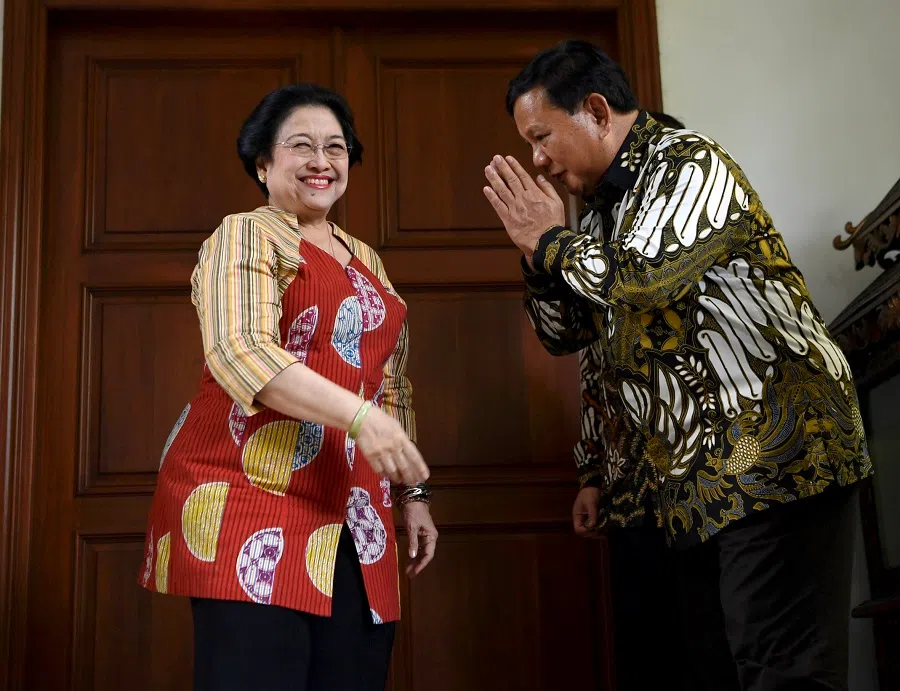
Prabowo was initially active in the political party Golkar, but later established the Gerindra Party with his supporters. In 2009, he joined hands with presidential candidate Megawati Sukarnoputri, chair of the Indonesian Democratic Party of Struggle (PDI-P), to run for vice president alongside her, but the pair lost to Susilo Bambang Yudhoyono.
In 2014, Prabowo formed an alliance with the Islamist Prosperous Justice Party (PKS) to run for president but suffered another loss. A PKS leader once said that although Prabowo is not a devout Muslim, he understands the Muslim forces in Indonesia very well — if he gets elected as president, he would definitely share power with them.
During the 2017 Jakarta gubernatorial election, Prabowo played the radical Muslim card and supported Anies Basdewan, an ethnic Arab and Muslim, to defeat Basuki Tjahaja Purnama (Ahok), an ethnic Chinese and Christian. However, Prabowo’s use of radical Muslim forces did not work well in the presidential elections — he was twice defeated by Joko “Jokowi” Widodo in the 2014 and 2019 presidential elections.
Eventually, the two adversaries became friends, with Prabowo not only joining Jokowi’s cabinet but even inviting Jokowi’s eldest son Gibran Rakabuming Raka to be his vice-presidential running mate in the 2024 presidential elections. Although Jokowi appeared to be neutral, any discerning eye could tell that he supported the Prabowo-Gibran duo.
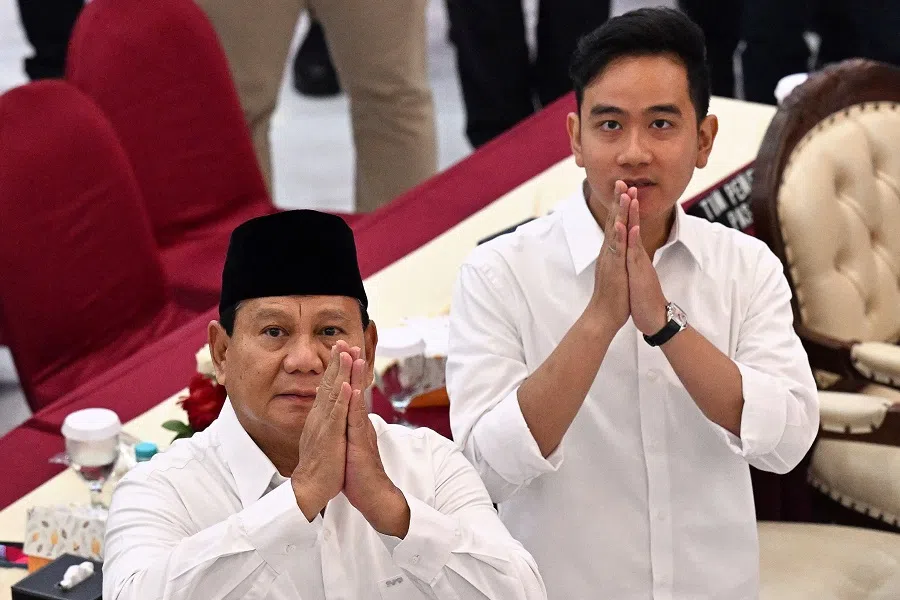
At the presidential elections on 14 February 2024, Prabowo and Gibran defeated their opponents and were elected as the next president and vice-president of Indonesia respectively. However, their opponents refused to concede defeat and alleged that the elections were fraudulent, claiming that the government had used state organisations and financial power to bribe voters. They took Prabowo to the Constitutional Court and requested the court to nullify the elections and to call for a new vote.
But leaders of several countries with close ties with Indonesia, including Malaysia, China, Japan and the US, had immediately congratulated Prabowo and Gibran as soon as the elections commission announced their victory on 20 March. Notwithstanding, Prabowo was invited to visit China even though his position as “president-elect” was not completely legitimate yet.
... he was taking the opportunity to show his “free and active” foreign policy by showing that he is pro-China and also pro-Japan, with the latter being a US ally.
Prabowo and Chinese culture
Some reports asserted that Prabowo’s visit to China was a mark of “China-Indonesia friendship” and even described Prabowo as an Indonesian elite who loves Chinese culture. Is this really the case? Let us analyse the purpose of his China visit.
As aforementioned, although Prabowo won the presidential election, the Constitutional Court had not issued its verdict at the time of his China visit, and his position as “president-elect” was not legitimate yet.
Coincidentally, after Prabowo visited China at the end of March at the invitation of Chinese President Xi Jinping, he also visited Japan and Malaysia. His visits could have been motivated by the following reasons: one, he hoped that foreign recognition would legitimise his position as “president-elect” and temporarily resolve the conflict with Jokowi. Two, he was taking the opportunity to show his “free and active” foreign policy by showing that he is pro-China and also pro-Japan, with the latter being a US ally. I explained these in detail in another article.
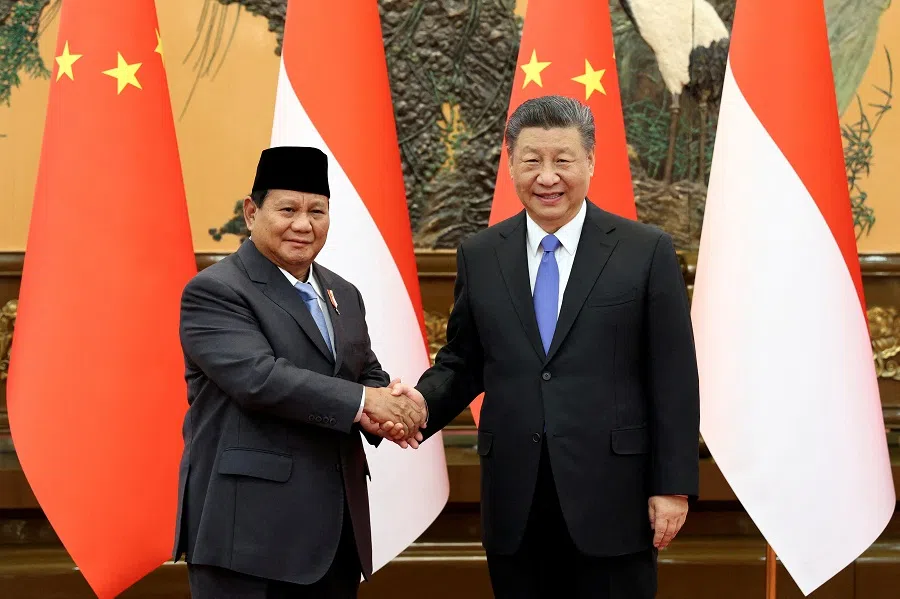
Against this backdrop, he knows that China needs Indonesia’s friendly cooperation, and that Indonesia also needs China’s economic and technological assistance. His intention was to make the visit a fruitful one.
At the welcome banquet hosted by Xi, Prabowo’s private secretary Agung Surahman performed the patriotic Chinese song Ode to the Motherland in front of Xi and other Chinese leaders, earning their praise and leaving a deep impression. Even Xi clapped in appreciation, which goes to show that this was indeed successful diplomacy.
To think that Suharto’s daughter would be singing a Chinese song in 2018; what an irony!
Later back in Indonesia, Agung said that it was an honour to sing in front of Xi and he was thankful to Prabowo for the opportunity. He shared that Prabowo enjoys listening to Chinese songs, especially the grandiose “Ode to the Motherland”, and so asked Agung to memorise the lyrics of the song to sing it at the banquet. However, prior to this, Prabowo’s love for Chinese songs was unheard of, nor had he ever mentioned it himself.
In fact, Prabowo was seen as an anti-Chinese and anti-communist general during the Suharto era. Some observers believe that he was the mastermind of the anti-Chinese Indonesian atrocities before Suharto’s fall — he was a figure representing old forces and the Suharto family.
However, after Suharto stepped down from office, to prepare for the 2019 presidential elections, Prabowo delivered a long address in December 2018 at a Chinese Indonesian gathering, claiming that he would protect minority groups if he was elected. He confessed that he loved Chinese philosophy, and even quoted a so-called Chinese proverb “One thousand friends are too few and one enemy is too many” as an example.
At the same gathering, Prabowo’s ex-wife Titiek stood beside him and sang the Chinese pop song The Moon Represents My Heart. It must be pointed out that during the Suharto era, the government eliminated the three Chinese cultural pillars — namely Chinese schools, Chinese organisations and Chinese media — and banned the use of Chinese language and characters in Indonesia. To think that Suharto’s daughter would be singing a Chinese song in 2018; what an irony!
Out of political need to get more funding from wealthy Chinese Indonesians and support from the Chinese Indonesian community, and perhaps to gain international recognition, “anti-Chinese” Prabowo has become “pro-Chinese”.
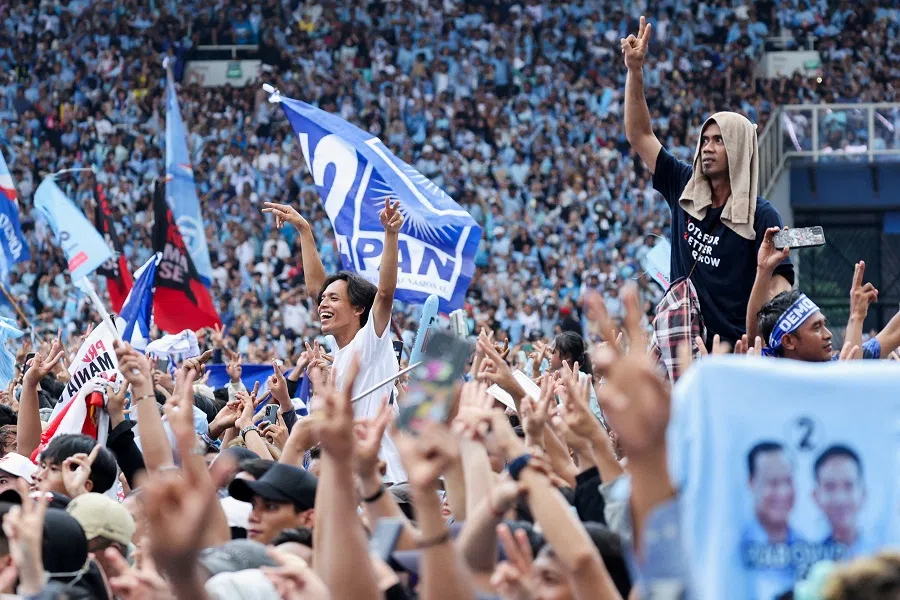
The global situation has changed. Out of political need to get more funding from wealthy Chinese Indonesians and support from the Chinese Indonesian community, and perhaps to gain international recognition, “anti-Chinese” Prabowo has become “pro-Chinese”.
In fact, we should get to know Prabowo again — he is a flexible political figure who is ready to give and take. After losing the 2019 presidential elections, he reconciled with his sworn enemy Jokowi and unexpectedly became defence minister. He teamed up with Jokowi’s eldest son at the 2024 presidential elections, and surprisingly won the elections. But that is just the way of politics: there are no permanent enemies or friends, only permanent interests.
Prabowo is an outstanding politician. He transformed from a tough general into an amicable elderly, and is always smiling in public, sometimes even dancing. He also transformed from an anti-Chinese and anti-Communist figure during the Suharto era into a “pro-Chinese” president-elect.
Experts analysed that these are just his tactics to gain power; while some others believe that he has turned over a new leaf. What kind of a person is Prabowo? Let’s see what he does after he takes office as president.
This article was first published in Lianhe Zaobao as “印尼候任总统普拉博沃其人其事”.
